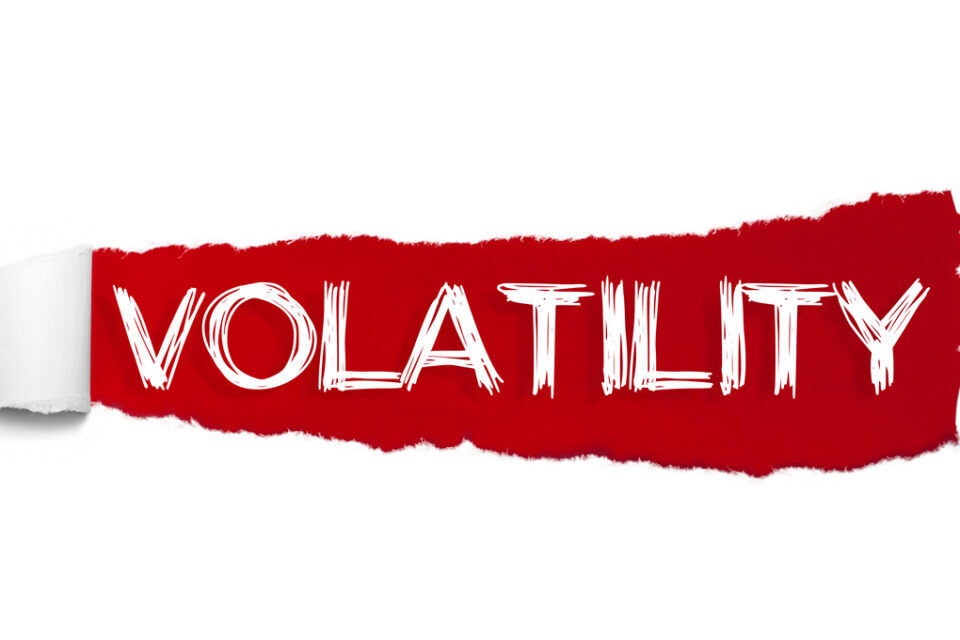Scott Kahan: What To Do With Your Money Now!

With recession forecasts creeping into the discussion on top of ongoing inflation concerns we are checking in with Scott Kahan for ideas on how to handle your money. Scott is a Certified Financial Planner professional and President of Financial Asset Management Corp. in Chappaqua and NYC.
As we approach Bear Market territory what are you telling your clients?
 That the financial markets hate uncertainty and there’s plenty of it right now. Uncertainty about inflation, gas prices, Ukraine and interest rates. Proof of uncertainty can be found in economic confidence surveys which all suggest the economy is not doing well. So, we expect sell offs and even a bear market because the market looks six months ahead.
That the financial markets hate uncertainty and there’s plenty of it right now. Uncertainty about inflation, gas prices, Ukraine and interest rates. Proof of uncertainty can be found in economic confidence surveys which all suggest the economy is not doing well. So, we expect sell offs and even a bear market because the market looks six months ahead.
Is the market anticipating a recession?
We had a quarter of negative growth in Q1 but that was due largely to inventory buildups in Q4 that were largely defensive measures about supply chain concerns. Those buildups depressed inventory purchases the next quarter. Here’s where I remind my clients that some of the inflation we have is because the economy is doing well. Consumers continue to spend.
As we move past lock downs and mask mandates, consumer spending is shifting from household goods back to services. With the summer travel season, we will probably get back to pre-pandemic spending patterns – which may be a slower pattern than we have seen, especially when it comes to consumer goods. That’s a concern if you are on a recession watch – but not necessarily bad news if you are on inflation watch.
Which could avert a serious recession?
There are lots of opinions on whether we have a recession or not. Probably not in 2022 – more likely 2023. But no one foresees a severe recession. And the rotation of consumer purchases moving back towards service, I think informs a lot of the opinions that view a potential recession as being later, lighter, and shorter. That said, it all depends on what prices we are talking about. Oil, gas, and food prices will likely continue to run high. In other areas of the economy prices may have already peaked. And, of course, the first thing that comes to mind there is real estate prices. With mortgage rates rising from below three to 5.25% – many people see housing prices as topped right now.
Are there any potential flies in the ointment that would change forecasts of a soft landing?
 In a word, China. And specifically, questions about China supply chain issues. Which are connected to their ongoing struggles with COVID lockdowns.
In a word, China. And specifically, questions about China supply chain issues. Which are connected to their ongoing struggles with COVID lockdowns.
Let’s talk about the markets now – what are you telling your clients?
Don’t get caught up in the day-to-day market volatility. And don’t sell into a panic. It’s not a secret that many stock watchers have been concerned for some time that stock prices were too high. Especially in the technology sector. Small caps have also been beaten up. And we may see another market drop. We were down in the S&P 500 about 17%-18%, but crossed into bear market territory earlier today. And are now bouncing off those lows as we speak. So keep calm and carry on!
What about the bond market?
 First bond holders should remember that if they are holding a fund that is down eight or nine percent, if you are getting a 3% dividend and reinvesting, over time it softens the loss. That said, Muni-bond holders have seen a hit. Almost unavoidably because there are not a lot of short term Muni fund opportunities. So, make sure the interest in your bond funds is being reinvested in those funds at these lower prices. The bond funds will also be reinvesting in new bonds at higher yields so fundholders yields will rise over time. In essence both the fund holder and the fund managers are dollar cost averaging. But that’s one way to play a bond fund.
First bond holders should remember that if they are holding a fund that is down eight or nine percent, if you are getting a 3% dividend and reinvesting, over time it softens the loss. That said, Muni-bond holders have seen a hit. Almost unavoidably because there are not a lot of short term Muni fund opportunities. So, make sure the interest in your bond funds is being reinvested in those funds at these lower prices. The bond funds will also be reinvesting in new bonds at higher yields so fundholders yields will rise over time. In essence both the fund holder and the fund managers are dollar cost averaging. But that’s one way to play a bond fund.
The 0ther opportunity is for bond holders to sell and take a loss. Those losses can offset other gains in your taxable portfolio if you have some stock winners you’ve been holding onto for tax purposes. You are effectively using the tax loss offsets in your bonds to reposition your equity portfolio. Or, if you don’t have gains, you can use up to $3000 per year as a loss on your tax returns and carry your losses forward in subsequent years.
Final thoughts?
 If you have new money designated for fixed income, and its long-term money, keep some on the side to get in at a lower price. Most losses are behind bonds now but may still go lower. For short to intermediate – keep cash because if rates do go up – you can get a better yield. As far as the stock market goes, if its money you don’t need – rebalance as needed and don’t get caught up in the stock market volatility – don’t worry about it. If you are overweight equities this may bring you back to where you should be.
If you have new money designated for fixed income, and its long-term money, keep some on the side to get in at a lower price. Most losses are behind bonds now but may still go lower. For short to intermediate – keep cash because if rates do go up – you can get a better yield. As far as the stock market goes, if its money you don’t need – rebalance as needed and don’t get caught up in the stock market volatility – don’t worry about it. If you are overweight equities this may bring you back to where you should be.
If you were under weight – you’re going to be more so now. So, you have a buying opportunity. Market sell offs are a good time to review your portfolio but it doesn’t mean you have to do anything. If you want to sell into this – than that money should not be in equities to begin with. Because when are you going to buy back in? When the market rebounds? That’s a formula for selling low and buying high.
Financial Asset Management Corporation has provided fee-only financial planning and investment management services for individuals and small businesses in the Tri-State area since 1986. They serve 175 clients and manage over 325 million dollars in assets. (26 South Greeley Avenue, Chappaqua, NY, (914) 238-8900; www.famcorporation.com )
More on What To Do from Scott Kahan here:


















